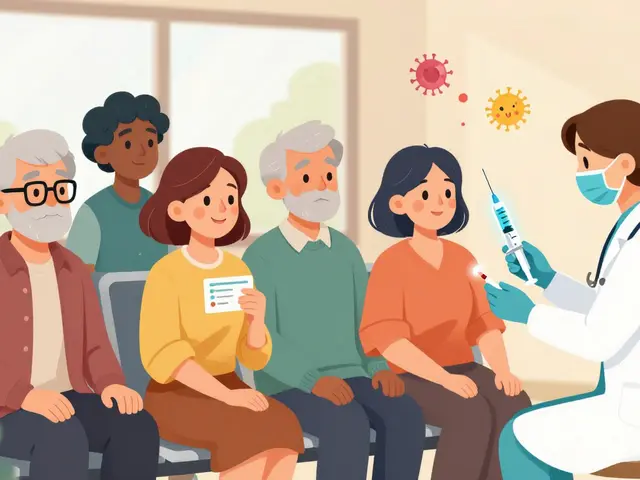Warfarin and Ibuprofen: What You Need to Know About the Risks
When you take warfarin, a blood thinner used to prevent dangerous clots in people with atrial fibrillation, artificial heart valves, or a history of deep vein thrombosis. Also known as Coumadin, it works by slowing down your body’s ability to form clots. Now, if you also reach for ibuprofen, a common over-the-counter painkiller in the NSAID family used for headaches, arthritis, or muscle soreness, you’re putting yourself at serious risk. These two don’t play well together. The combination can turn a minor cut into a major bleed, or cause internal bleeding you won’t even notice until it’s too late.
Here’s why: ibuprofen irritates the lining of your stomach and gut, making it easier for blood to leak out. At the same time, warfarin makes your blood less likely to clot. Together, they create a perfect storm. Studies show people on warfarin who take ibuprofen regularly are up to three times more likely to have a gastrointestinal bleed. And it’s not just stomach issues — you could also see bruising that won’t fade, nosebleeds that won’t stop, or dark, tarry stools. Even a simple fall could become life-threatening. The FDA and multiple medical societies warn against this mix. It’s not a "maybe" — it’s a clear no-go.
But what if you’re in pain and can’t just tough it out? You don’t have to suffer. Acetaminophen (Tylenol) is usually the safer pick for pain relief when you’re on warfarin — it doesn’t interfere with clotting the way ibuprofen does. Still, even acetaminophen needs careful dosing. Never take more than 3,000 mg a day, and always check with your doctor before starting anything new, even herbal supplements. Some natural products like garlic, ginger, or ginkgo can also thin your blood. Your warfarin dose is finely tuned based on regular blood tests (INR). Adding something new can throw that balance off overnight.
If you’ve been taking ibuprofen while on warfarin, don’t panic — but do act. Call your doctor. They’ll likely want to check your INR right away and may switch you to a different pain reliever. Many people don’t realize that over-the-counter doesn’t mean safe when you’re on anticoagulants. The real danger isn’t the drugs themselves — it’s the assumption that because they’re easy to buy, they’re harmless.
Below, you’ll find real-world guides and patient stories that break down exactly how these interactions happen, what to watch for, and how to manage pain safely without risking your health. Whether you’re on warfarin yourself or caring for someone who is, the info here isn’t theoretical — it’s life-saving.
NSAIDs and Blood Thinners: The Hidden Danger of Combining Them
Combining NSAIDs like ibuprofen or naproxen with blood thinners can cause dangerous internal bleeding. Learn why this interaction is so risky, which pain relievers are safe, and what to do if you're already taking both.






